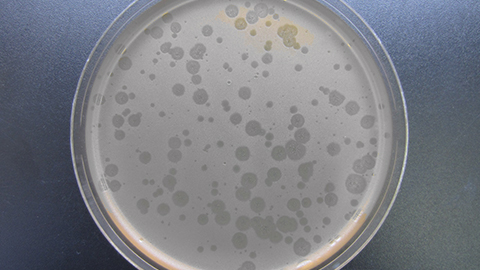The UAB participates in a project to control bacterial infections in poultry farms

11/01/2019
The project aims to develop effective and safe solutions to act as an alternative to the use of antibiotics in animal production. With a budget of 3.3 million euros, the group proposes using bacterial viruses (bacteriophages) to control Salmonella and Escherichia coli in poultry farms.
With more than 40,000 poultry farms, the European Union is the largest poultry meat producer in the world (approximately 13.1 million tonnes per year) and the second largest producer of eggs (more than 11 million tonnes annually). What's more, the poultry industry in Europe generates 302,000 workplaces and has an annual invoicing of 30 billion euros. Colibacillosis, caused by the E. coli bacteria, is a severe disease affecting poultry, which is also a natural reservoir for Salmonella. This bacteria is responsible for salmonellosis in humans, with a yearly economic impact of 3 billion euros according to the European Food Safety Authority (EFSA).
Data furthermore indicates that different practices, such as the indiscriminate use of antibiotics, has given rise to an increase in antibacterial resistance. It is estimated that 700,000 people die annually worldwide due to infections caused by these resistant bacteria, a figure that will rise to 10 million people by 2050 if the correct measures are not taken.
A Biocide and Two Food Additives
In response to these serious situations, the PhagoVet project aims to develop three types of products: one biocide and two food additives, produced with the use of bacteriophages and capable of eliminating Salmonella and Escherichia coli from poultry farms. This will be the first phage-based solution on European scale capable of naturally and effectively controlling the two most common pathogen bacteria found in poultry production, thus preventing the side effects and residues associated with antibiotics. The use of bacteriophages in animal production represents a safe solution for the environment, the animals and humans.
The project forms part of the Fast Track to Innovation initiative of the European Commission's Horizon 2020 programme. This initiative provides funding for innovative proposals from their demonstration phase up to the day they enter the market. Therefore, in a maximum of three years, PhagoVet will be able to place three microbiological control products on the market. The UAB research group led by Dr Montserrat Llagostera from the Department of Genetics and Microbiology is a leader in research into bacteriophages. The group has patented and licensed a food-use product also based on phages, whose company is about to enter the market.
The PhagoVet project is coordinated by Controlvet, a Portuguese enterprise offering biotechnological services applied to food safety. In addition to the involvement of the UAB, the project includes the Centro de Calidad Avícola de la Comunidad Valenciana (CECAV) consortium, the Belgium consultants VETWORKS BVBA, who give support to projects related to the animal industry and veterinary pharmaceuticals, and the Polish company Phage Consultants, specialist in producing bacteriophages on industrial scale.